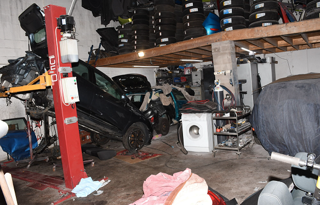Used car values declined during February for the first time since 2008 as car retailers begun to show signs of "reluctance" to squeeze their profit margins any further, according to Cap HPI.
The 0.6% decline in average values bucked years of positive or flat price movement in the sector during the second month of the year.
Cap HPI attributed the downward movement in 2019 to a reluctance among car retailers to continue squeezing profit margins in the pursuit of further increased volumes.
Derren Martin, Cap HPI’s head of UK valuations, said: “January and February are historically months where wholesale vendors of cars push prices up due to increased demand and lower supply.
“While volumes were certainly not high, demand has not increased since the start of the year, so that hoped for ‘buying frenzy’ has been conspicuous by its absence.
“The vibrant auction environment usually enjoyed at this time of year has been a little subdued, led by the retail market being slower than in previous years and a reluctance of retailers to pay more than they have previously, so as not to squeeze margins further.”
Both city cars and superminis dropped by less than the average – 0.2 and 0.4%, respectively – at the three-year point during February, according to Cap HPI data.
Further analysis showed that the executive sectors were being the hardest hit of all, dropping by an average of between 1.5 and 2.1%.
These cars were also amongst the hardest hit in January too, so a theme is developing, led by economic uncertainty and a reticence to make “big ticket” purchases.
SUVs and MPVs also fell in value by more than the average, both by 0.8%.
Martin said: “With the outcome of Brexit still very much up in the air, there is some economic uncertainty.
“With this in mind, it is tough to predict the next few weeks and months until the nature of any deal, or indeed no deal, is known.
“It is likely that March 2019 will see further stability in used prices rather than increases. Reluctance to pay more by the trade will likely continue, and there may be a slight slowdown in the retail market, with franchised dealers focussing on new car activity in the plate-change month, plus Brexit uncertainty meaning consumers may delay big-ticket purchases while awaiting economic clarity. How soon this materialises, however, remains to be seen.”
Vicky Gardner, head of remarketing at epyx, said that many retailers were being forced to think hard about what they were now willing to pay for used car stock.
She said: “Increasingly last year, we saw a situation develop where the core margin on selling cars and vans was being further and further reduced.
“As one result of this, we have seen dealers place more emphasis on other profit opportunities associated with the sale such as motor finance, warranties and service plans.
“However, there has also been a general recognition of the need to minimise the cost of acquisition. With margins under this degree of pressure, every pound counts.”
Gardner said that this trend was revealing itself in a range of changing behaviours among dealers, with an acceleration in the ongoing swing towards online stock acquisition and an increasing interest in the differences between all of the varying online sources available, with a greater recognition of the type of stock that each handles and the cost of buying through them.
She said “Among online platforms, there is greater diversity than perhaps has been previously realised and buyers are becoming much more sophisticated in their approach as a result.”



















Login to comment
Comments
No comments have been made yet.